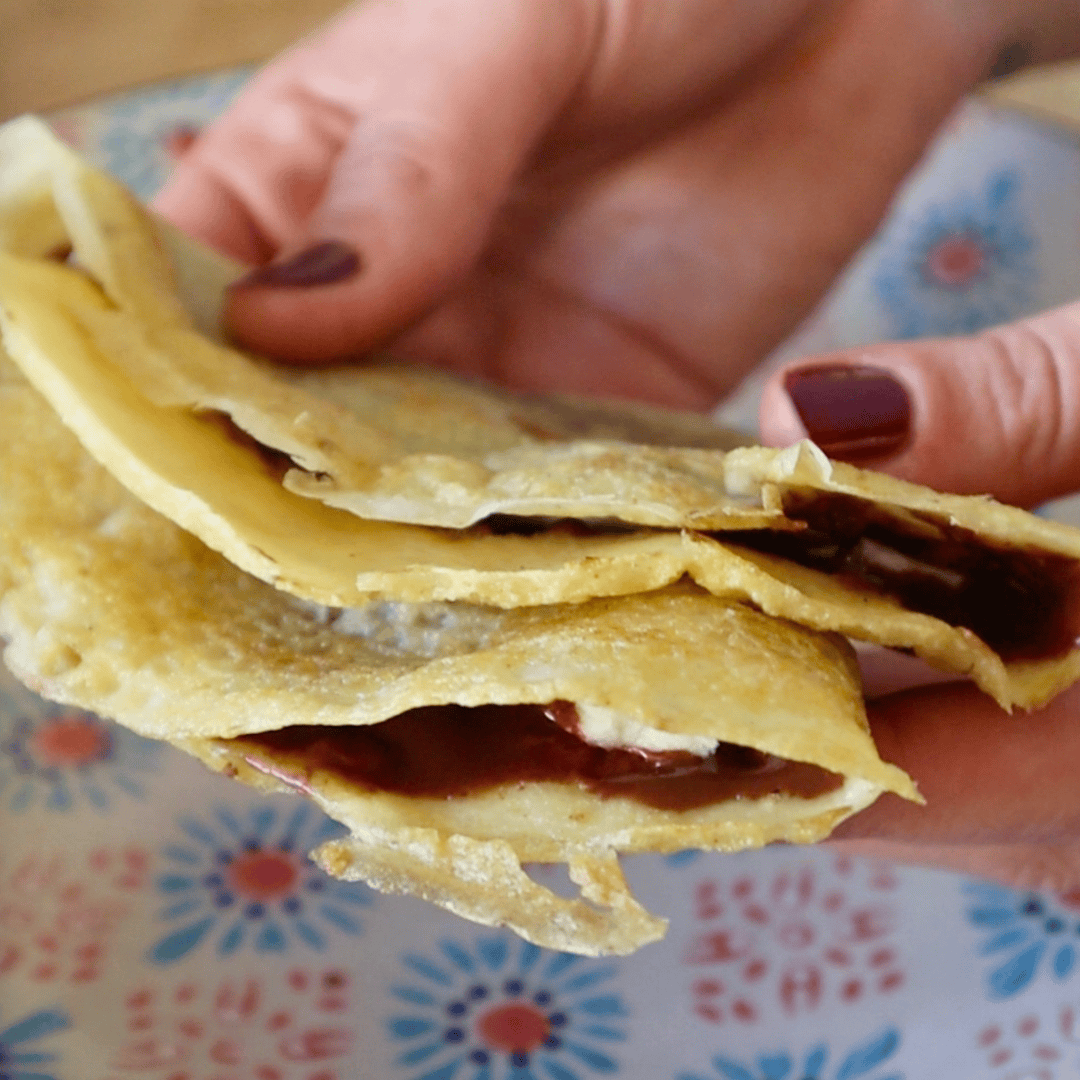Looking for dijon mustard substitutes? Maybe you ran out or you simply don’t like the taste. Fear not! There are plenty of substitutes that can fill in seamlessly, each bringing its unique twist to your dishes. Here are the best substitutes for dijon mustard to try.
Though some alternatives might not taste exactly like the original, most recipes still work well with them. Just be aware that they may have a little different texture and taste. The goal in replacing mustard sauce is to find something that is tart/vinegary.

What is dijon mustard?
Dijon mustard is a variety of mustard that originated in Dijon. It is a beloved staple in many kitchens, known for its tangy and slightly spicy flavor that enhances a wide variety of dishes.
It is prepared by soaking brown or black mustard seeds in white wine vinegar, grinding them, and combining them with water, salt, and additional ingredients.
Dijon mustard pairs well as a condiment because of its strong, pungent flavour. It can also be an ingredient in many recipes and used to make salad dressings.
What does mustard taste like?
Dijon mustard has a flavour that is strong, sharp, and just a touch peppery and acidic.
9 Best Substitutes For Dijon Mustard
White Wine Vinegar

White wine vinegar is a versatile and easily accessible substitute for Dijon mustard. Well-known for its tart, biting flavour, it adds a bright acidity that can improve the flavour of many different foods. Its sharp, clear flavour profile makes up for the lack of mustard seed basis and creamy texture. This makes it a great option for dishes that really benefit from the tanginess of Dijon mustard.
Why it works
White wine or wine vinegar is typically used to make dijon mustard, which adds to its unique flavour. Using it as a substitute makes sure that we keep the flavour similar to the oringinal, so that the dish maintains the intended taste profile. The acidity in white wine vinegar can cut through rich ingredients, balancing flavors and adding a refreshing bite.
Uses
White wine vinegar can be seamlessly integrated into salad dressings, marinades, for roasting or sautéing vegetables and sauces and dips for the acidic component. Start with a smaller amount then. mustard and adjust to taste.
To mimic the creaminess of mustard you can mix it with mayo or yoghurt. You can also add a pinch of sugar to balance the acidity.
Lemon juice

Lemon juice is a vibrant and versatile alternative to Dijon mustard. Known for its bright, acidic flavor, lemon juice can add a refreshing zest to a variety of dishes. Although it lacks the creamy texture of Dijon mustard, its tangy profile makes it a suitable substitute in many recipes, especially when a burst of citrus is desired.
Why It Works
Dijon mustard’s distinctive tanginess often comes from the vinegar or wine used in its production. Lemon juice provides a similar acidic component, which helps to balance flavors and add a refreshing bite. The natural citrus notes of lemon juice can enhance the overall taste of your dish, making it a great stand-in for Dijon mustard when you want to add a fresh and lively flavor.
Uses
Like white wine vinegar, lemon can be used for salad dressings, marinades, for roasting or sautéing vegetables and sauces and dips for the acidic component. Start with a smaller amount then mustard and adjust to taste.
To mimic the creaminess of mustard you can mix it with mayo or yoghurt. You can also add a pinch of sugar to balance the acidity.
Horseradish

Horseradish is a potent and flavorful substitute for Dijon mustard, bringing a distinctive sharpness and heat to dishes. Known for its pungent and spicy profile, horseradish can effectively mimic the spicy kick of Dijon mustard, making it an excellent alternative in recipes that benefit from a bit of extra heat and depth of flavor.
Why It Works
Dijon mustard is valued for its tangy and slightly spicy flavor, which horseradish can replicate with its own unique intensity. Made from the root of the horseradish plant, this condiment delivers a fiery punch that can elevate the taste of various dishes. The key to using horseradish as a substitute lies in its ability to provide a similar spiciness and tang, enhancing the overall flavor profile of your recipe.
Uses
Like the first two substitutes, horseradish can be used for salad dressings, marinades, for roasting or sautéing vegetables, sandwich spreads and sauces and dips for the acidic component. Horseradish is much spicier so start with a smaller amount then mustard and adjust to taste.
To mimic the creaminess of mustard you can mix it with mayo or yoghurt. You can also add a pinch of sugar to balance the acidity.
Wasabi

Wasabi, which is often connected to Japanese cooking, is a strong and smoky alternative to Dijon mustard. It is renowned for its potent heat and distinct flavour, and it gives food a special kick. Although it has a different flavour profile than Dijon mustard, its pungency and spice make it a great substitute in dishes that need a strong, zesty boost.
Why it works
Dijon mustard is renowned for its sharp, slightly spicy flavour; wasabi may mimic this heat and give your food a distinct dimension. Wasabi, which is made from the grated root of the Wasabia japonica plant, has a horseradish-like, strong, transient heat. Because of this feature, it works well as a stand-in for Dijon mustard in recipes that call for a vibrant, peppery touch.
Uses
Use wasabi sparingly, starting with 1/4 of the amount of Dijon mustard and adjusting to taste. It works well in dressings, sauces, and Asian-inspired dishes.
To mimic the creaminess of mustard you can mix it with mayo or yoghurt. You can also add a pinch of sugar to balance the acidity.
Mayonnaise and Vinegar

Mixing mayonnaise with a bit of vinegar can create a creamy, tangy substitute for Dijon mustard. This combination mimics the texture and acidity, making it a versatile replacement.
How to use it: Combine mayonnaise with white wine vinegar or lemon juice to taste, using a 1:1 ratio for Dijon mustard. Ideal for dressings, sauces, and spreads.
Tomato Ketchup and Vinegar

Tomato ketchup mixed with vinegar can serve as an unconventional but effective substitute. It adds sweetness and tang, along with a bit of acidity.
How to use it: Mix ketchup with vinegar to taste, starting with a 1:1 ratio. Use this blend in barbecue sauces, marinades, and dressings.
Siracha Mayo

Siracha mayo combines the creamy texture of mayonnaise with the spicy kick of Siracha, creating a flavorful substitute for Dijon mustard. It’s perfect for adding heat and creaminess to dishes.
How to use it: Substitute siracha mayo in equal parts for Dijon mustard. Great in sandwiches, dips, and dressings.
Barbecue Sauce

Barbecue sauce can be an unexpected yet delightful substitute for Dijon mustard. It brings a sweet, smoky flavor that adds depth to various dishes.
How to use it: Use barbecue sauce in a 1:1 ratio for Dijon mustard. Works well in marinades, sauces, and as a condiment for meats.
Other Mustards

Other mustard varieties can often stand in for Dijon mustard, each bringing its unique flavor and texture.
- Stone-Ground Mustard: Coarse and tangy, with whole mustard seeds. Use in equal parts for a robust flavor and texture.
- Yellow Mustard: Milder and less tangy, common in American cuisine. Use in equal parts for a familiar taste.
- Beer Mustard: Infused with the flavor of beer, providing a unique twist. Substitute in equal parts for a richer taste.
- Whole Grain Mustard: Similar to stone-ground but with a mix of whole and crushed seeds. Use in equal parts for added texture.
- Dry Mustard: Powdered mustard seeds. Mix with water and a bit of vinegar to create a paste, then use in equal parts.
How to Choose the Right Substitute
Selecting the right Dijon mustard substitute depends on the specific dish and your personal taste preferences. Here are a few tips to help you choose:
Match the Flavor Profile: Consider the overall flavor of your dish. If it needs a tangy kick, white wine vinegar or lemon juice are great choices. For sweetness, opt for ketchup + vinegar or barbecue sauce.
Texture Matters: If texture is important, such as in salad dressings or as a condiment, stone-ground mustard or whole grain mustard are ideal.
Spiciness Levels: Adjust the spiciness to your liking. For a milder option, try mayonnaise + vinegar. For more heat, go with wasabi or horseradish.
Experiment and Taste: Don’t be afraid to experiment. Try different substitutes and taste as you go to find the perfect balance for your dish.
Substitutes for Dijon mustard: Conclusion
Having these versatile replacements for Dijon mustard means that running out of it won’t be a culinary disaster. There is a substitution for every cuisine and palate, whether you like a fiery punch, a bit of sweetness, or a sour blast. You can expand your culinary skills and find new flavours by experimenting with these substitutes. Thus, the next time you’re without Dijon mustard, seize the chance to try something tasty and unique!
SIMILAR POSTS









